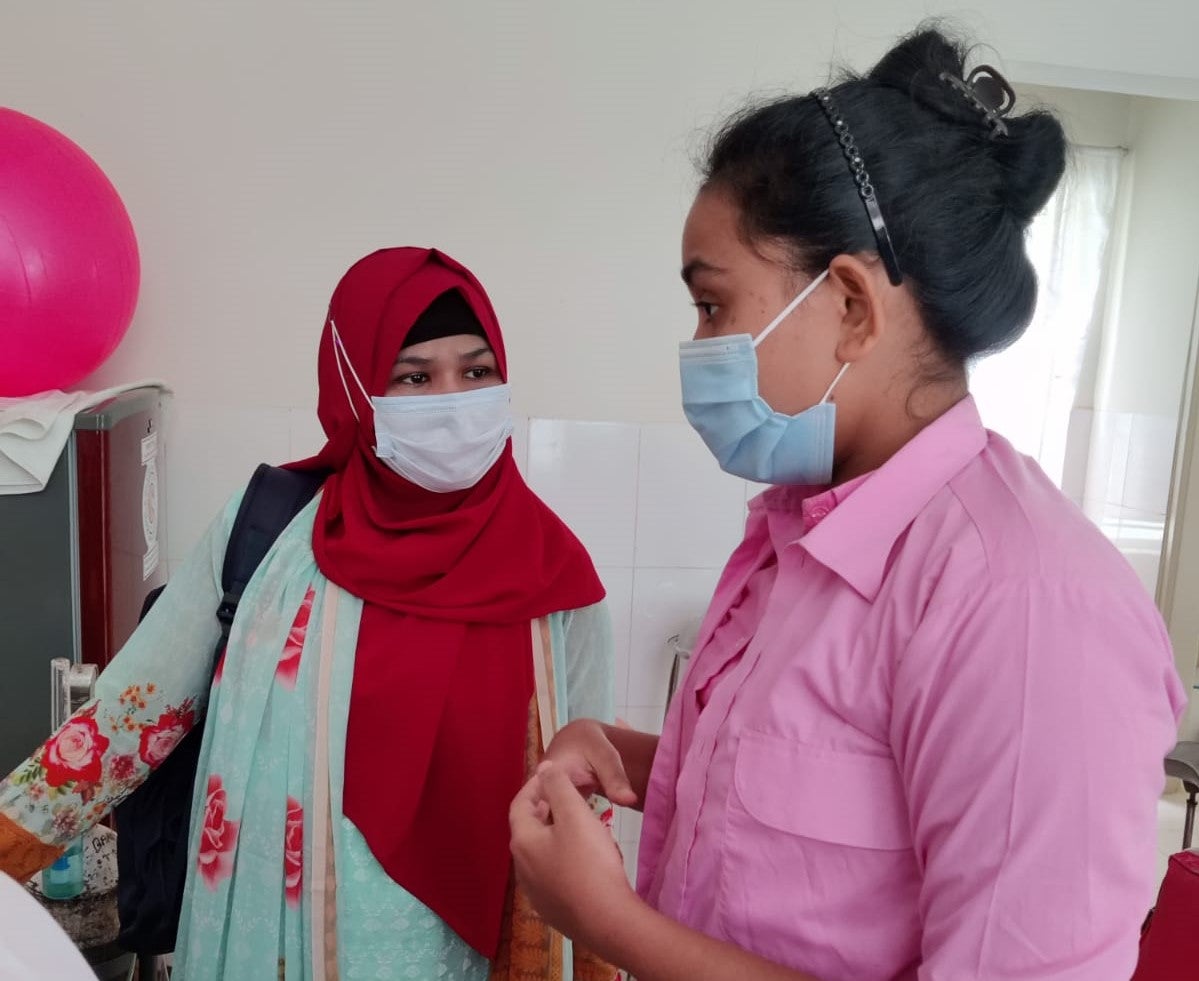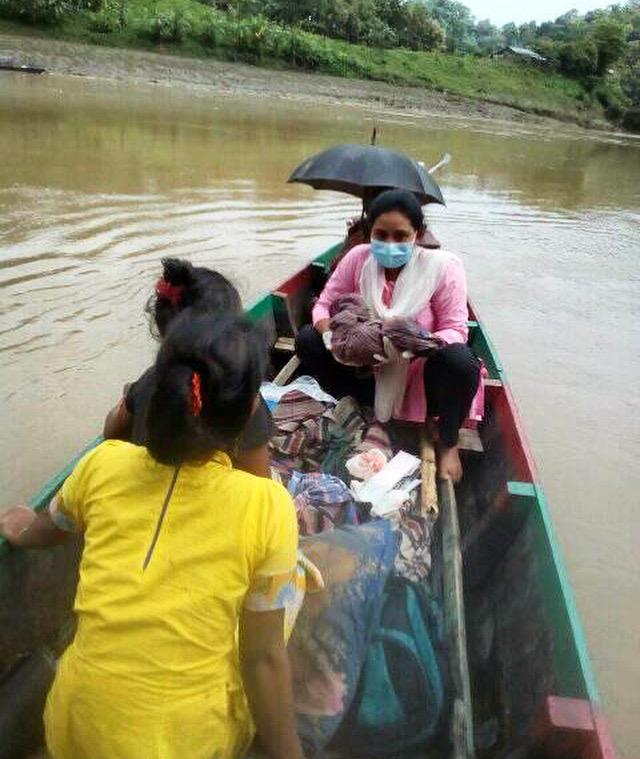“I try to provide maximum support to all the patients, but they live in such remote places that even if they come for one visit they may not be able to come for their next appointment. Patients often have to travel for hours by boat or bike to reach the hospital and as the area is poor, they do not always have the money to pay for transportation.”
This is how Zilkee Sharma describes the daily challenges she faces while working as a midwife in Ruma Upazila Health Complex in Bandarban Hill District. Bandarban is considered to be the most remote district in all of Bangladesh. The region’s hilly terrain, low population density and proclivity to landslides during monsoon have all complicated the development of infrastructure in the district, which has also limited the local population’s access to quality sexual and reproductive health services.
To address this issue, UNFPA has been coordinating with local authorities in recent months to deploy more midwives to the Bandarban district. Zilkee herself was deployed to the district with UNFPA’s support in June of 2021. Just during her first two months in the job, her midwifery skills have been put to the ultimate test.
As Bandarban Hill District is home to over a dozen different ethnic groups, each with their own language, Zilkee often struggles to communicate with the patients that she receives. This is particularly challenging during COVID-19, as midwives may have to communicate with patients via cellphone due to them being afraid or unable to come to the health facility for check-ups.

Because of the linguistic diversity in Bandarban Hill District, communication with patients can sometimes be a major challenge for Zilkee (right) and her midwife colleagues
The distance patients have to cover to reach the hospital can also result in midwives having to perform their duties in the most unexpected of environments. Zilkee herself got a taste of this during one Saturday morning in July, when a man suddenly burst into the health complex in total panic.
“There is a pregnant woman doing a delivery in a boat. Please come and help her,’’ he yelled.
What had occurred was that a pregnant woman living about two hours away from the health facility had not known her scheduled delivery time due to not being able to come to the health facility for antenatal check-ups.
One morning her water had suddenly broke and she had begun to travel the health facility with her husband and two neighbours. Amidst heavy monsoon rains, the group had sailed down the river on a small, worn out fishing boat for two hours and just when they had almost reached the hospital, the woman found herself unable to get up from the boat.
Immediately understanding the severity of the situation from the man’s description, Zilkee rushed to the river with all her equipment. As she reached the boat, the woman’s delivery had already progressed to the point where the baby’s head was beginning to appear. Realizing that there was no way the woman could still be brought safely to the hospital, Zilkee began to confidently perform the delivery on the boat.
In a matter of hours, the woman had given birth to a healthy baby girl with absolutely no complications. She was admitted to the hospital for observation for night, after which she happily returned to her village with her husband and second child the next day.
“I am so happy that I was able to save both a life of a mother and a little baby girl today. If I would not have come to the river, the situation could have been really serious. I have never been as proud to call myself a midwife!,” Zilkee stated after the delivery.

Picture of Zilkee in the boat with the newborn immediately after the delivery
In pursuit of achieving zero preventable maternal deaths in Bangladesh by 2030, UNFPA Field and SRHR Officers in Bandarban will continue to work with the local Civil Surgeon, Upazila Heath and Family Planning Officer and District Public Health Nurse to ensure that midwifery services are more readily available to pregnant mothers in the district.
In the context of COVID-19, there is particularly a need to improve access to telemedicine services, which will enable midwives to provide guidance to pregnant mothers remotely. If pregnant mothers are able to get a reliable estimation of their scheduled delivery time even remotely, incidents like the boat delivery Zilkee had to perform will become much easier to avoid.
Until then, the women of Bandarban can remain assured that committed midwives like Zilkee will stand ready to perform a safe delivery anywhere, anytime.





